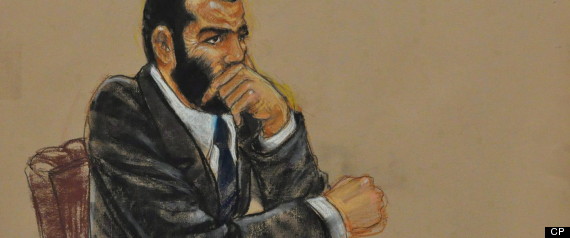Omar Khadr's treatment in a Canadian prison may be more harsh than at Guantanamo Bay, says a former U.S. military psychiatrist who interviewed Khadr for his defence team and has since become an independent advocate for him.
Dr. Stephen Xenakis, interviewed for White Coat, Black Art by host Dr. Brian Goldman, says that Khadr, 27, needs orthopedic surgery for previous injuries, and he's not getting it.
"I'm very dismayed … The physicians are obligated, as we're always obligated, to provide the best care that we can, and this man needs that treatment."
Khadr is currently being held at a maximum security prison in Edmonton since being transferred from Millhaven Institution near Kingston, Ont., and before that Guantanamo.
He's in a prison for hardened criminals, Xenakis said, where there have been at least five murders in the past five years.
"That kind of thing did not happen in Guantanamo."
At the U.S. prison in Guantanamo, Khadr was kept in a cell with five or six others and had the support of a community. Now, he is considered a maximum security risk.
"Incorrectly, he's being treated as a criminal," Xenakis said.
"Now fortunately, because he's a very, very decent individual, there are guards who look out for him, and he's able to relate to the other prisoners in a way that he's not in as much danger."
Original Article
Source: huffingtonpost.ca
Author: cbc
Dr. Stephen Xenakis, interviewed for White Coat, Black Art by host Dr. Brian Goldman, says that Khadr, 27, needs orthopedic surgery for previous injuries, and he's not getting it.
"I'm very dismayed … The physicians are obligated, as we're always obligated, to provide the best care that we can, and this man needs that treatment."
Khadr is currently being held at a maximum security prison in Edmonton since being transferred from Millhaven Institution near Kingston, Ont., and before that Guantanamo.
He's in a prison for hardened criminals, Xenakis said, where there have been at least five murders in the past five years.
"That kind of thing did not happen in Guantanamo."
At the U.S. prison in Guantanamo, Khadr was kept in a cell with five or six others and had the support of a community. Now, he is considered a maximum security risk.
"Incorrectly, he's being treated as a criminal," Xenakis said.
"Now fortunately, because he's a very, very decent individual, there are guards who look out for him, and he's able to relate to the other prisoners in a way that he's not in as much danger."
Original Article
Source: huffingtonpost.ca
Author: cbc

No comments:
Post a Comment